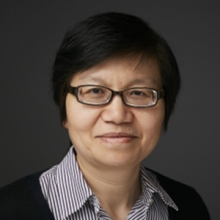Abstract
Background: Social isolation is prevalent and associated with dementia, yet the directionality and mechanisms are less understood. This study examined the association between social isolation and cognitive functioning and explored the mediating role of sleep disturbance on the social isolation-cognition relationship.
Methods: Data from 5 753 dementia-free Americans aged ≥50 of 2006 (T1), 2010 (T2), and 2014 (T3) waves of the Health and Retirement Study. Social isolation was measured by the Steptoe Social Isolation Index. Cognitive functioning was measured by the Telephone Interview of Cognitive Status. Sleep disturbance was measured with the modified Jenkins Sleep Scale. We used cross-lagged panel models to determine the associations between social isolation, sleep disturbance, and cognitive functioning.
Results: Social isolation is significantly associated with subsequent cognitive functioning (T1 to T2: β = -0.055, standard error [SE] = 0.014, p < .001; T2 to T3: β = -0.044, SE = 0.016, p < .001). Lower cognitive functioning is significantly associated with greater subsequent social isolation (T1 to T2: β = -0.101, SE = 0.020, p < .001; T2 to T3: β = -0.058, SE = .011, p < .001). Sleep disturbance at T2 partially mediated the effect of social isolation (T1) on cognitive functioning (T3), accounting for 6.2% of the total effect (β = -0.003, SE = 0.001, p < .01).
Conclusions: Social isolation may deteriorate cognitive functioning and vice versa. The association between social isolation and cognition is partially explained by sleep disturbance.
Keywords: Cognition; Cognitive aging; Psychosocial; Sleep; Social relationship.


